"Functional suppression scotoma (FSS) is a “blind” area, manifesting itself in the visual eld of the squinted eye only
in condition when both eyes are open, and disappearing when observation is monocular (one eye is closed). Suppression
scotoma is a prevailing form of sensory adaptation of binocular vision system aimed to eliminate possible diplopia due
to asymmetrical eyes position in strabismus. Unfortunately, the techniques available do not allow obtaining detailed
information on the FSS structure and parameters. In this work we present the results of the FSS investigation, carried
out by means of a specially elaborated computer program providing a possibility for qualitative and quantitative
assessment of the FSS properties in the central and peripheral zones of the visual eld on the basis of counting the
cases of test object detection and missing. Subjects: 32 patients with concomitant strabismus (23 patients with
convergent and 9 with divergent strabismus) with different refractory anomalies are presented. Control group: 24
patients with refractory anomalies, but without strabismus. In the course of testing, suf cient differences in results
obtained for strabismic and control groups have been revealed. In strabismic group, the percentages of missed peripheral
objects were signi cantly larger (13.3±0.23% in average, max – 72.5%), than in control group (0.45±0.02% in average, max
– 2.5%). Moreover, only 7 patients with strabismus were able to fuse the central xation object, while in the control
group all the patients successfully handled this task. The procedure appeared to be relatively easy and not tiresome
for the patients. Thus, the elaborated program could be considered as suitable for regular examination of kids."
Key words:
functional suppression scotoma, retinal correspondence, binocular vision, strabismus, visual diagnostics
Cite:
Rychkova S. I., Gracheva M. A., Senko I. V., Tahchidi H. P.
Kompleksnaya otsenka funktsionalnykh skotom u patsientov s kosoglaziem
[Comprehensive assessment of the functional suppression scotoma in patients with strabismus].
Sensornye sistemy [Sensory systems].
2016.
V. 30(4).
P. 312-318 (in Russian).
References:
- Kanski J.Clinical ophthalmology: a systematic approach. M.: Logosphera, 2009. 944 p. [in Russian].
- Kashchenko T. P. The binocular visual system in case of concomitant strabismus // Doctor of medical science thesis, Moscow 1978. 312 p. [in Russian].
- Kropman I. L. The physiology of binocular vision and its disturbance in concomitant strabismus. Moscow. 1966. 206 p. [in Russian].
- Pospelov V. I. To the theory and practice of recovery fusion and binocular vision strabismus in children // Doctor of medical science thesis, Krasnoyarsk, 1988. 290 p. [in Russian].
- Rozhkova G. I., Ploskonos G. A. Multiplicity of mechanisms of binocular synthesis and their selective disturbance in strabismus // Sensory systems.1988. V. 2. No 2. P. 167–176 [in Russian].
- Rozhkova G. I., Matveyev S. G. Children vision: Problems of evaluation and functional correction. M.: Science, 2007. 315 p. [in Russian].
- Rozanova O.I., Shuko A.G., Ilyin V.P., Malyshev V. V. Concomitant convergent strabismus in adults. Irkutsk, 2005.131 p. [in Russian].
- Rozenblum U. Z., Kashchenko T. P., Yachmeneva E. I., Grigoryan A. U., Elhov V. A., Ovechkis U. N., Kondratiev N. V. Method of the study and recovery of binocular vision // Patent No 2133103 (16.05.1997) [in Russian].
- Rychkova S. I., Korolenko A. V. Using a liquid-crystalline glasses in diagnostics of functional scotoma // Siberian medical journal. 2005. No 6. Р. 60–61 [in Russian].
- Shamshinova A. M., Volkov V. V. Functional methods of examination in ophthalmology. M.: Medicine, 1999. 416 p. [in Russian].
- Chaumont P. L’inhibition a la relecture de Hamburger //J. Fr. Orthoptique. 1995. V. 27. P. 27–36.
- Dubois-Poulsen A. Le champ visual. Paris: Masson, 1952. 225 p. Espinasse-Berrod M.-A. Strabologie: approches diagnostique et therapeutique. Paris: Elsevier, 2004. 306 p.
- Economides J. R., Adams D. L., Horton J. C. Perception via the deviated eye in strabismus // J. Neurosci. 2012. V. 32 (30). P. 10286–10295.
- Jeanrot N., Jeanrot F. Manuel de strabologie. Aspects cliniques et therapeutiques. Paris: Masson, 2003. 175 p.
- Piano M., Newsham D. A pilot study examining density of suppression mesurement in strabismus // Strabismus. 2015. V. 23 (1). P. 14–21.
- Worth C. Das Schielen. Atiologie, Pathologie, und Behandelung. Berlin, 1905. 189 s.
